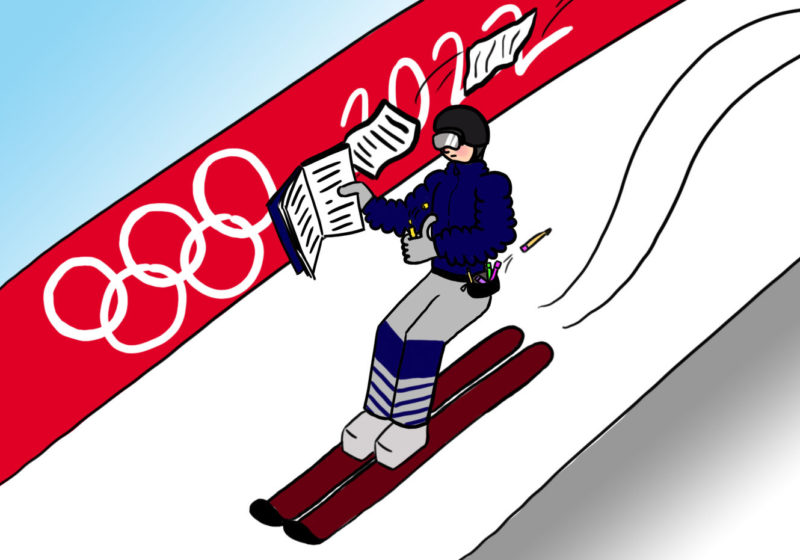What is it like to be the best of the best? Stressful, I imagine. During events like the Olympics, we are reminded of the almost unimaginable talent that these athletes have. We see them break records and do the seemingly impossible. They are truly the best of the best.
The Winter Olympics are particularly dangerous. Death and severe injury is nonchalantly considered part of the necessary risk one must take to compete. In such a high-stakes environment, stress levels are already elevated. The whole world is watching these athletes, their entire country depending on them. This would be enough pressure to make most people snap. We judge athletes when they react poorly to losses, but with their countries counting on them, can we blame them?
When someone is a superstar in an area of their life, it seems that people focus more on their few failures than their many successes. Maybe it’s because the failures are outliers. Or maybe people want to see them fail because they can’t fathom their success. Shaun White, a three-time gold medalist snowboarder, just retired. However, if you Google his name, you will find articles emphasizing how he placed fourth in his final Olympic event, missing a chance to be on the podium. Very few articles mention his record as the oldest male halfpipe rider to ever compete in the Olympics.
When someone is the best, breaking records and winning are considered expectations. And with high expectations, the failures feel more devastating. In the winter Olympics, failures don’t just mean not winning a medal — they can have dire consequences. So far this year, there have been many serious injuries among the athletes. Nina O’Brien, an American Alpine Skier, fractured her tibia and fibula during a horrendous fall at the end of her giant slalom run. Although her injury is serious, far worse injuries have taken place during past winter Olympics. In 2018, Austrian snowboarder Markus Schairer broke his neck during an Olympic event. In 2010, Nodar Kumaritashvili, a Georgian luger, died during a practice run. During the final turn, he was launched from his sled at 88 mph, and after hitting a pole, he could not be revived. Worst of all, this occurred after many athletes raised concerns about the safety of the course.
One of this year’s biggest Olympic scandals has been that of Russian figure skater Kamila Valieva. At only 15 years old, she became the first woman figure skater to land a quadruple jump during the Olympics. The world was in awe of her. Russia won gold in the team event, but when news of a failed drug test surfaced, the medal ceremony was canceled. Valieva had tested positive for a banned substance which called into question if Russia could still receive their gold medal. Given her age, Valieva is not responsible for her positive drug test, and in this unique and somewhat unprecedented situation, the jury is still out on how to proceed. Valieva’s coach, Eteri Tutberidze, is known for pushing young figure skaters past their limits, causing many of them to retire within one to two years. There is speculation that Tutberidze pushed Valieva into doping, which reveals a dark trend in sports. No matter who ultimately wins gold, the moral is that the best athletes are being pushed beyond their limits.
In modern sports, expectations are too high and coaches push athletes more than they should. It’s not surprising that some athletes snap under the pressure. Evidently, the athletes are not to blame. The way they’re treated — by coaches and fans alike — sets lofty expectations and harsh criticism every shortcoming. It’s no surprise that being an athlete is not sustainable physically or mentally.
We must be more forgiving of our athletes. Modern sports need to have more achievable expectations, or the Olympics might not be around in the future. For most, the pursuit of being the best is more detrimental than the possible gain.






